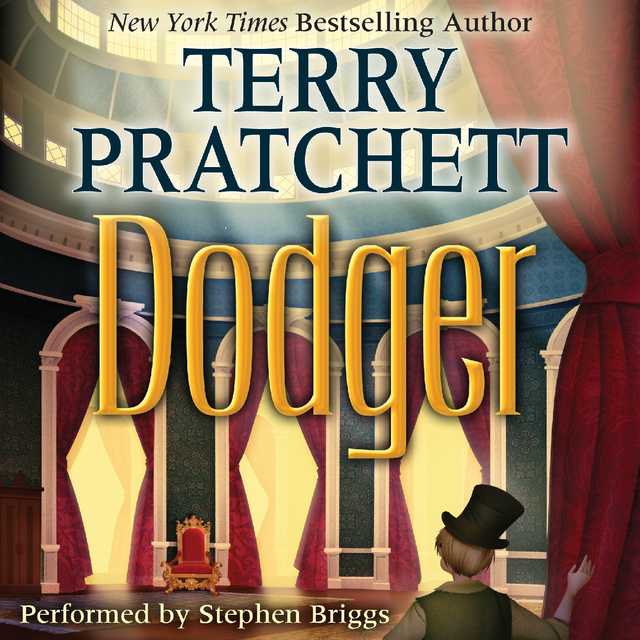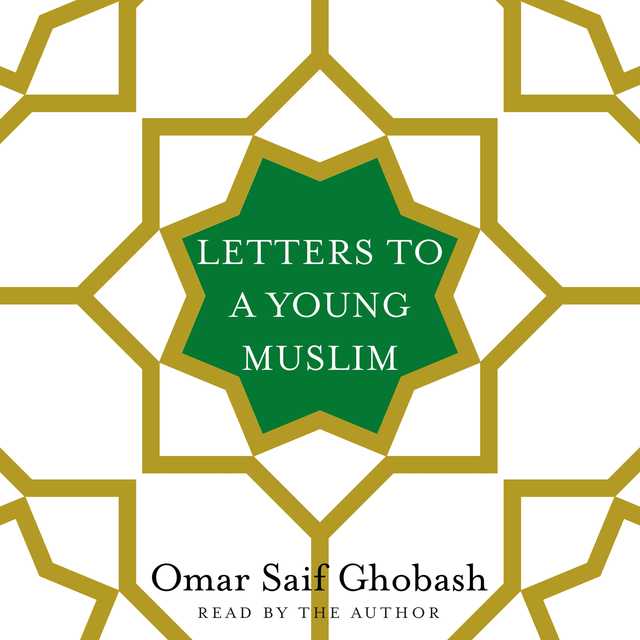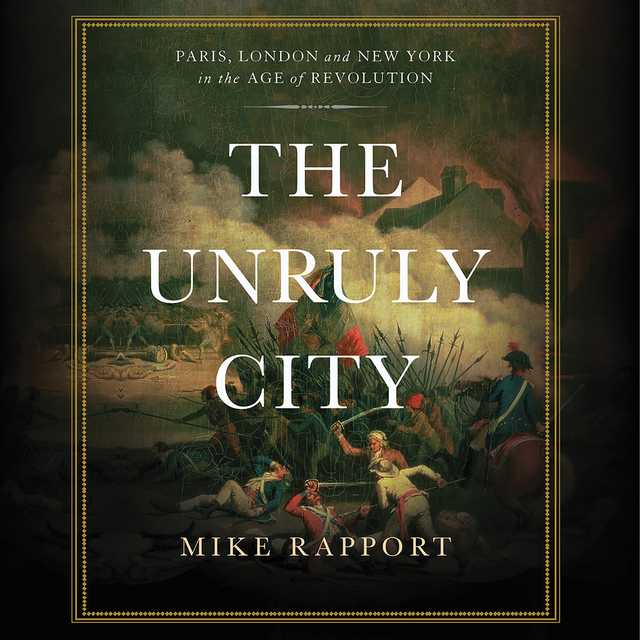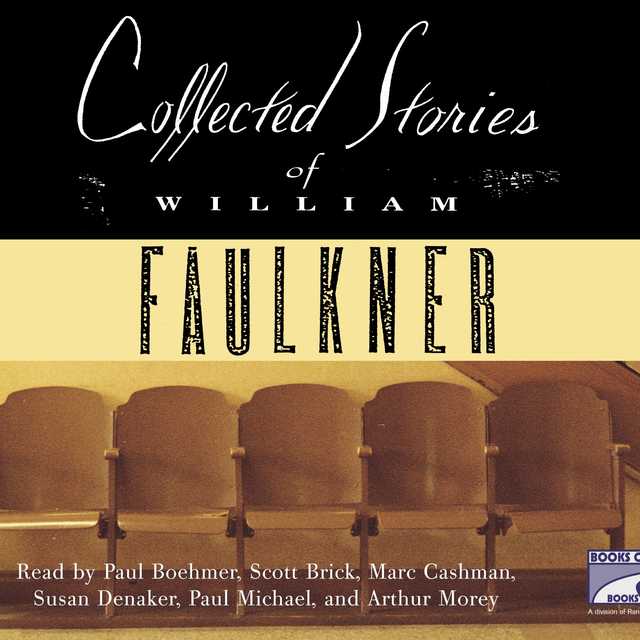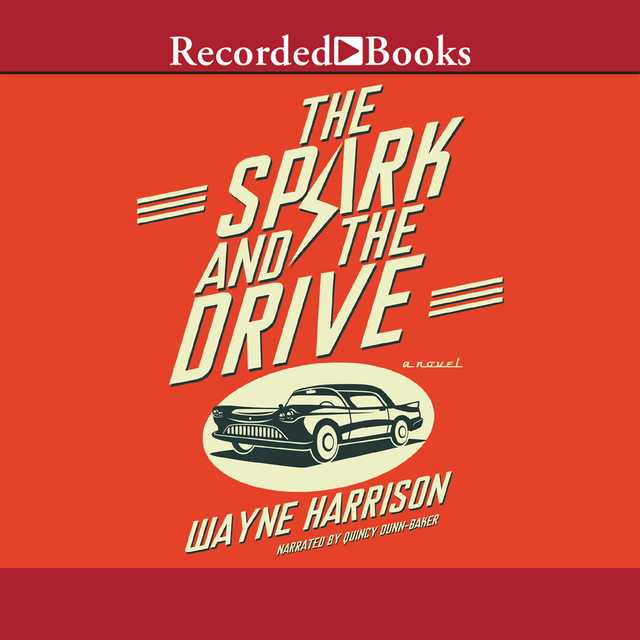Dodger Audiobook Summary
Beloved and bestselling author Sir Terry Pratchett’s Dodger, a Printz Honor Book, combines high comedy with deep wisdom in a tale of one remarkable boy’s rise in a fantasy-infused Victorian London.
Seventeen-year-old Dodger is content as a sewer scavenger. But he enters a new world when he rescues a young girl from a beating, and her fate impacts some of the most powerful people in England.
From Dodger’s encounter with the mad barber Sweeney Todd, to his meetings with the great writer Charles Dickens and the calculating politician Benjamin Disraeli, history and fantasy intertwine in a breathtaking account of adventure and mystery.
Other Top Audiobooks
Dodger Audiobook Narrator
Stephen Briggs is the narrator of Dodger audiobook that was written by Terry Pratchett
Stephen Briggs lives in Oxfordshire and has been involved in the world of amateur dramatics for many years. Oxford Studio Theatre Club staged his adaptations of Wyrd Sisters, Mort, Guards! Guards!, and many others. As well as compiling The Discworld Companion, The New Discworld Companion, and, now, Turtle Recall: The Discworld Companion . . . So Far, he has also co-authored the Discworld Diaries, the Mapps, and voices the UK and US Discworld audiobooks.
About the Author(s) of Dodger
Terry Pratchett is the author of Dodger
More From the Same
- Author : Terry Pratchett
- Darwin’s Watch
- Raising Steam
- Snuff
- The Long War
- A Hat Full of Sky
- Publisher : HarperCollins
- Coraline
- Little House on the Prairie
- Little House in the Big Woods
- On the Banks of Plum Creek
- Farmer Boy
Dodger Full Details
| Narrator | Stephen Briggs |
| Length | 10 hours 31 minutes |
| Author | Terry Pratchett |
| Publisher | HarperCollins |
| Release date | September 25, 2012 |
| ISBN | 9780062201959 |
Additional info
The publisher of the Dodger is HarperCollins. The imprint is HarperCollins. It is supplied by HarperCollins. The ISBN-13 is 9780062201959.
Global Availability
This book is only available in the United States.
Goodreads Reviews
Bionic Jean
February 08, 2023
“Mister Dodger is so sharp that one day his name will be known on every continent, possibly as the benefactor of mankind, but also quite possibly as the most charming scoundrel ever to be hanged!”He sounds a lovable rogue then, our Dodger. So is he? Well yes, he’s certainly a cocky scallywag, but I doubt whether you’ll ever have met one quite like him before. You see Dodger is a tosher—a sewer scavenger—who lives in the squalid underbelly of Victorian London. In fact the dark, malodorous sewer that runs underneath Victorian London’s labyrinthine streets, forms a major part of the book.“He stayed alive because he was the Dodger, smart and fast. He knew everybody and everybody knew him”or to be more accurate, everyone who is nobody knows Dodger, but anyone who is somebody, doesn’t. Or not until this novel.Terry Pratchett has created a unique character, and placed him in Victorian’s London’s seamy underworld. To be sure, we feel we might know him already, from a gigantic clue the author gives us, in the title of the first chapter:“In which we meet our hero, and the hero meets an orphan of the storm, and comes face to face with Mister Charlie, a gentleman known as a bit of a scribbler.”Now this is not the sort of title we are used to with Terry Pratchett, who frequently doesn’t bother with chapters at all, let alone ones with fancy titles like this. Nor is it a typical style of title for a 21st century novel. It’s more like a chapter title in a 19th century novel—or even earlier—which tells in brief all that is about to occur. Now which 19th century author wrote novels harking back to this 18th century tradition, so much sometimes that if his writing had not disguised it so beautifully, the titles might have served as spoilers? Yes, you have it: Charles Dickens.And reading that very first sentence, plus the novel’s title: Dodger, we smile to ourselves and sit back, knowing we are in for a romp of a ride with a master storyteller, giving homage to the earlier Inimitable writer.“The whole of life was a game. But if it was a game, then were you the player or were you the pawn?”“Anyone can rise if they have enough yeast.”“The man gave Dodger a cursory glance that had quite a lot of curse in it.”Here we see the umistakeable sly wit of Terry Pratchett. But it is a brave writer who will dare to take on a writer of the stature of Charles Dickens. Every year we see more and more “spinoffs”, either telling new stories of one of his multifarious minor characters—or even a major one—or even (to my mind rather outrageously) rewriting parts of Dickens’s life which ignore well-documented facts. Very few of these are entertaining or enlightening; most prove to be deadly dull. But in Dodger we are in the hands of a confident, skilful writer, who had already written over 50 novels and had until recently been the top-selling author in the UK, with his works translated into 37 languages. What’s more, although many fans worldwide think of him as an author of fantasy novels, Terry Pratchett was an English humourist and satirist. And that description fits Charles Dickens exactly. We may love him for his stories and characters, but he wrote much more; a great part of his writing being comic satire, whether fiction or his many essays and pieces of journalism.So Terry Pratchett dared to not only write characters who were based on Charles Dickens’s own inventions, but to set his novel in a place and time we know from Dickens’s novels, and also to write with great wit and humour. He had the skill and the knowledge, and from the very beginning, you know it is going to work. The irresistibly goodhearted smelly rogue, Dodger (with his equally smelly dog, Onan) bumps into Mister Charlie, and both recognise the other for what they are, and know that nothing will get past them. This inclusion of Charles Dickens is of course branching into a kind of metafiction—and yet even here, Dickens did it first. Think of the ending of “The Cricket on the Hearth”, or the whole of “To be Read at Dusk”. In several stories we are aware of an extra character lurking in the shadows, and know that the Inimitable has stealthily sneaked in. Sometimes the author’s voice reveals this, so why shouldn’t Terry Pratchett bring him into the open?Dodger is partly Jack Dawkins, the Artful Dodger from “Oliver Twist”, with his sharp instincts and knowledge of the underworld. He is streetwise and loyal to his friends. But he is also Jo, the crossing sweeper from “Bleak House”, who “didn’t know nuffink”; an inexperienced innocent, unknowing and baffled by the classes above him and their own devious ways. And Dodger is no weak imitation of these unforgettable characters, as there is a big dollop of Himself on every page.So how do Dodger and Mister Charlie meet? The story begins dramatically enough, with a young lady being thrown from a carriage by two thugs. When Dodger witnesses this, all his protective instincts and indignation rise to the fore, and when the young lady appeals to him he takes on the pair singlehandedly. Two toffs arrive: Charlie and his friend Henry, and all three decide where to take the young lady, Dodger and Mister Charlie having agreed that Henry and his wife are the ones best placed to safeguard her life. They call the young lady “Simplicity”, (view spoiler)[ and we learn she has lost her unborn child in this brutal episode, and later discover that she has escaped the torment of a loveless marriage to an unknown nobleman “from one of the Germanys”. (hide spoiler)] She remains in mortal peril.From these ignominious beginnings, Dodger becomes enmeshed in a plot, developing his detective and acting skills, and inadvertently beginning to rise up the ladder of Victorian society “faster than a chimpanzee”.As well as Dodger, we meet his landlord, a Jewish craftsman called Solomon Cohen. Solomon is clearly modelled on “Ikey” Solomon, who is widely held to be Dickens’s inspiration for Fagin in “Oliver Twist”. The other toff—the friend of Mister Charlie—is Henry Mayhew, another important Victorian figure. In fact Terry Pratchett dedicates the novel to the real Henry Mayhew in honour of his groundbreaking work, which Terry Pratchett acknowledges as the foundation of his novel. It is a huge, comprehensive study titled: “London Labour and the London Poor” which draws attention to the plight of London’s poorest slum-dwellers.In the novel Henry Mayhew is also very interested in improving the conditions for London’s poorest citizens. It is not long before Dodger realises that although his new friends are gentlemen, they are also “geezers”, and he admits to himself that they deserve respect for their acuity (and in Mister Charlie’s case, for his ingenuity, although to Dodger's mind he does have some annoying habits, like scribbling things down on bits of paper). Dodger admires Mister Charlie, and has the uncomfortable feeling that Mister Charlie can see everything, every little secret, that Dodger hoped was safely hidden in his mind.Appearances are also made by a youthful “Ben” Disraeli, an up-and-coming young politician and friend of Mister Charlie. He is introduced as a member of parliament (view spoiler)[ and is to play a supporting role in Dodger’s scheme to fake Simplicity’s death. (hide spoiler)]. Joseph Bazalgette is there too, as a civil engineer who is interested in the sewers. I had wondered about the goddess of the sewers, “Cloacina”, and her rat attendants, only to discover that there really was an ancient belief in a deity who was said to preside over the Cloaca Maxima (“Greatest Drain”), the main interceptor discharge outfall of the system of sewers in Ancient Rome!Plus we meet someone of whom Dodger feels very wary: Sir Robert Peel, the head of the newly formed police force in London. In Dodger’s opinion, these are a completely different kettle of fish from the earlier “Bow Street Runners”, who were a fairly disorganised bunch. Again, this is based on facts, and even to this day Metropolitan police officers are sometimes referred to as “peelers”, honouring Sir Robert Peel. (view spoiler)[However, despite Sir Robert Peel’s official statements, he is supportive of Simplicity’s wish not to be returned to her husband, and is willing to give Dodger a free hand and overlook a number of his not strictly legal activities, in order to accomplish this. (hide spoiler)]Each of these makes the reader smile when we meet them, and one of the most surprising and entertaining is Sweeney Todd! Was he a real character, I wondered? But in fact he was a fictitious character who has evolved a sort of mythology all his own. Here Terry Pratchett has tweaked the urban legend to invent a barber (view spoiler)[ who had been traumatised by his experiences in the Napoleonic Wars. Suffering from PTSD, he believes that his customers are soldiers whom he could not save in the war, coming back to life. This leads him to kill them. Dodger inadvertently becomes a hero by disarming Sweeney Todd, but he correctly surmises that Todd is not to blame for his actions, and uses some of the reward money he comes into, to improve Sweeney Todd’s life in Bedlam. (hide spoiler)]It is a poignant and also an hilarious episode; conjuring up the sort of odd juxtaposition of emotions in the reader at which Charles Dickens himself excelled.Now we come to the person who made my smile broaden even further, when I realised “Angela” was to feature. She was a benefactor of Victorian society—and a very good friend of Charles Dickens to boot—both in the novel and in real life. Angela Burdett-Coutts was an independent woman who had inherited a large sum of money, and who used her wealth and connections to help those who needed it. (view spoiler)[ It is she who took in Simplicity after it became clear that she was not safe at the Mayhews’ house and who uses her resources to protect her. (hide spoiler)] Angela Burdett-Coutts has a large part to play in this novel, and Terry Pratchett has written a very believable character for this resourceful, no-nonsense, compassionate woman. Second to Dodger, she may be my favourite character.There’s also a dastardly villain, of course. Where would a Dickensian novel be without its irredeemably evil baddie? In this case we have “The Outlander”, a wanted assassin (view spoiler)[who has been hired to kill Simplicity and Dodger. The authorities fail to notice that there is always the same woman at his side. (hide spoiler)] No wonder they have been finding it hard to catch a man who seems to look different every time he commits a crime. And what a fantastic tribute to Charles Dickens, who so loved his mysterious strangers, his disguises and his doppelgängers.Oddly, the Goodreads reviews have been rather lukewarm about Dodger. Some complain that it is not interesting. Others say it does not have any magic—or that it has an unlikely plot. I personally found the plot of the novel to be relatively linear, like Dickens’s shorter novels rather than his massive and complex middle period tomes. But it is hugely enjoyable to read how Dodger charms, sneaks and sometimes uses his fists to get through a series of dark and dangerous encounters, as he seeks answers and protects Simplicity. Then turning a page I would find myself laughing out loud at his Toad Hall-ish disguise. And reading Pratchett’s prose is such a pleasure, with ingenious word-building on every page.Some readers grumble about the references to Charles Dickens … either they are too overt, spoiling the fun (but might encourage children to read Dickens)—or conversely that it might be enjoyed by those who have not read anything by Charles Dickens! Others say that it does not have any tension or suspense; or that that the reason for the danger is too vague … Some of the objections are such polar opposites that I scratched my head wondering if they applied to the same book. They seem to cancel each other out.When Dodger was first published, the British newspaper “The Observer” called it: “The work of a prolific humourist at his best.” I too found it to be a romp of a read, which cleverly manages to succeed as a droll and witty adventure story, whether or not the reader has read anything by Charles Dickens. It also includes different levels of references, so the first chapter title is obvious, but later we have subtle motifs which were favourites of Dickens, but would only be picked up by enthusiasts. For instance, the “gleaming teeth” refer most obviously to Mr. Carker in “Dombey and Son”, but are also features of several other of Dickens’s characters. (This could be because Victorian society considered it bad form to display your teeth; one of the reasons for the grim faces in old photographs). Another reference is the capacious umbrella, carried around the world by the faithful Mrs. Bagnet in “Bleak House”—or held on to by the drink-sodden Mrs. Gamp in “Martin Chuzzlewit”. Or perhaps the “rosebud mouth” used of Dickensian heroines throughout his career, from Rose Maylie in “Oliver Twist” to Rosa Bud in “The Mystery of Edwin Drood”. Again, there is a wealth of traditions and symbolism to do with flowers: roses and rosebuds especially, known to Victorians, but largely forgotten by us. “Rosebuds” symbolised innocence and purity, not only in literature but in the wider world; even being carved on tombstones. There are a host of motifs a keen reader of Dickens might spot, but I doubt that they were put in to “test” us, or that Terry Pratchett began his novel thinking, now how can I get children to read Dickens? Surely all it shows is that Terry Pratchett, like those who pick these motifs up, was a keen reader of Charles Dickens, and liked to include little jokes. Terry Pratchett once said:“[to write], you must read extensively, both inside and outside your chosen genre … and to the point of “overflow””.It is clear from this novel that Terry Pratchett knew the works, concerns and stylistic features of Charles Dickens’ writing very well indeed. Dodger is steeped in Dickensian London, both in its foggy, grimy setting, its traditions and slang, and the lives of its inhabitants. And underlying everything is the stink of the sewer.In his afterword, Terry Pratchett apologises for the fact that this is a work not of historical fiction but of historical fantasy. The story is set “broadly in the first quarter of Queen Victoria’s reign,” which would be between 1837 and 1853. However, he had to “tweak” history a little, as he says, to get the combination of persons he wanted in place. For instance Sir Robert Peel is Home Secretary in the novel, a role he filled under Queen Victoria’s predecessor, William IV.If you want depth and complexity, it is all there in Dodger. But unlike so-called “literary” novels, it is not compulsory to analyse each sentence to appreciate and enjoy this novel. I recently read a literary novel which presented a mystery about the writing of “The Mystery of Edwin Drood”. It had no humour whatsoever, and did not capture the feeling of Victorian London—nor the personalities of its real life characters—who just seemed to be included willy-nilly. It did not feel English, (it wasn’t, in fact), it reduced Charles Dickens to a bland Everyman, but worst of all, it was just so very boring! It is a serious omission for anything purporting to be “Dickensian” to lack humour.Does our hero escape from his dark and smelly subterranean life? Well that would be telling. But I can assure you that you will have fun finding out! And if you think of the satisfying endings of Charles Dickens' novels, where everyone gets their just deserts, that gives you a big clue. As Mister Charlie says:“After all, my young Dodger, what exactly are you? A stalwart young man, plucky and brave and apparently without fear? Or, possibly, I suggest, a street urchin with a surfeit of animal cunning and the luck of Beelzebub himself.”
Daniel
May 06, 2013
The most unexpectedly fun read of the year is Terry Pratchett's Dodger. With an unmatched skill, Pratchett shows himself to be a writer akin to to Mark Twain and as adept in the historical world of 19th century London as he is in the imaginary world of Ankh-Morpork.A month ago or so, Britt came home with a book on CD for a road trip. "It's called Dodger," she said as we set off down the road. "By some guy called Terry Pratchett.""Discworld?" I asked from the driver's seat. "Disc-what?" she said. "No, it's won some award." She flipped to the back. "It looks like is about Charles Dickens...and Sweeney Todd?""Hm...I wonder if it's the same Pratchett."She popped in the first CD, and we began one of the most unexpectedly enjoyable books of the year. And yes, it is the same Terry Pratchett of Discworld fame.In a departure from the comings and goings of the denizens of Ankh-Morpork, Pratchett delves into the world of Dickens' London, when the sun never set on the British Empire, but the streets stunk and the poor lived a miserable life.The story opens on a dark, wet night(almost the cliched "a dark and stormy night" but Pratchett never lets you see it) as a carriage comes careening through the streets, carrying a damsel in distress, under threat of death. Out of the darkness comes Dodger, a whirl-wind beating off thugs and saving the day.And we're off. Little more than a child of the streets, Dodger falls for the girl in the carriage, and soon find himself on a path carrying him directly away from the sewers and into the halls of Parliament, the rich, and the powerful. Including appearances--and more--from Charles Dickens, Sweeney Todd, Benjamin Disraeli and others, Dodger, and its title character, take the reader on a clever and delightful ride, full of the language, color, and flavor of 19th century England. I've read several of Pratchett's previous novels, including from the Discworld novels and his The Long Earth (with Stephen Baxter) and Good Omens (with Neil Gaiman). With Dodger, though, Pratchett proves his skill as a wordsmith and story-teller. Constantly colorful and always witty, Dodger is fun, inventive, and thoroughly enjoyable.If you've never read Pratchett before, Dodger is a great place to start.
Marta
September 10, 2015
** spoiler alert ** Un libro con un estilo divertido (¡es Terry Pratchett!) y una trama de aventuras/misterios que no está mal... Pero si algo cautiva en Perillán es su descarado y extrañamente honesto protagonista, y su ambientación, el Londres victoriano más crudo y sucio que no deja ser, a su manera, un personaje más de esta historia.
Crispitina30
June 19, 2017
Se terminó... :(Un largo bloqueo lector y un seguido de problemas personales han hecho que tardara un mes en leerlo, pero, ahora que lo he terminado, me da muchísima pena separarme de esta historia. Ha sido toda una aventura victoriana llena de valores y que demuestra que, incluso en el mayor ambiente de miseria, podredumbre y desesperación, existe gente buena en el mundo. Debo decir que algunas partes del argumento me ha costado entenderlas. También me ha parecido que no tiene tanto humor como otros libros del autor, o quizá sea yo que no he captado todas las referencias (soy bastante joven y tengo mucho que aprender), pero aún así tiene momentos y frases capaces de sacar una sonrisa a cualquiera.Y cómo no, Perillán y Simplicity son OTP total. Hacía tiempo que una pareja literaria no me encandilaba tanto. Me encantan, de verdad.Gracias por tanto, maestro Pratchett.
Marta
January 05, 2023
The main conflict revolves around a young woman fleeing from an abusive husband, and Dodger, in the tradition of knights in shining armor clothes covered in sewer muck everywhere, comes to her rescue. She turns out to be complicated, therefore everyone refers to her as Miss Simplicity. Dodger finds himself being pursued by policemen and an assassin, but also hobnobbing with the prime minister and a very rich aristocratic lady, even meeting Queen Victoria. At the end, he has to devise a daring rescue….This is a favorite of many, it is pure adventure and Dodger and everyone is drawn with Pratchett’s trademark understanding humor. However, as he acknowledges in the afterword, Pratchett always writes fantasy, even if he abstains from magic and fantasy creatures: none of this rags to riches story is even vaguely possible. Most readers would not care, but I am a bit of a stickler when it comes to historical accuracy, so there were a lot of things that bothered me and got me out of the flow. There is no way that the aristocracy would let a known sewer rat into their midst as an honored guest, even if he is a hero, without some thorough scrubbing and teaching of manners, not to mention be gently forgiving when they find their handkerchiefs stolen. The dialog was often completely unbelievable for the same reason, and I could find no real attraction between the two young lovers. Writing romance was never Pratchett’s strong suit and it us ok if it is a small part of the story, but here it was more central.Overall I think most people would love this, unless you are a stickler for historical detail, like me.
Erastes
September 24, 2012
Wasn't sure what to expect, to be honest - I thought it was a Discworld novel, with Dickensian overtones with an Ankh-Morpork Dodger character so it was a pleasant surprise to find it set in actual Victorian London(although, as Pratchett himself says, a London with a bit of a shine on it.)I was seriously impressed by the writing and to me it seemed as though Pratchett has been leading up to this book via the YA books, particularly Maurice, and the Watch novels. There are undertones of much of Nobby Nobbs, Vimes and others but they are nothing much more than ghosts which leave no trace in this interesting world. Flavourings, but nothing more.Dodger is a great character and I hope that Pterry visits him again soon - he's certainly left the door open for that to happen - the kind of "hero" that's the opposite side of Vimes in many ways, but still still a hero for all that. The kind of man who will set fire to a stables, but will gently take out all the horses and put them somewhere safe before doing so. The man who will rob a embassy of everything his sticky fingers can get on, but never consider himself a theif, for that is behind him.He's a Tosher, which was someone who would "mine" the sewers for the coins and jewellery that would be swept away and got stuck in the ancient brickwork. He's good at it, and makes a decent living. He does border on the Gary Stu, it has to be said. He's good at everything he tries his hand at, disguise, toshing, theifing, and even wins the heart of a good woman despite his tendency to smell of poo (i'm sure lye soap doesn't remove all the smells.)I got slightly bored at times when we are told over and over again how he's a dodger, a tosher, a geezer, a cove and what all these terms mean, and I wasn't really convinced of the INSTA-LOVE between Simplicity and himself. i can see what he saw in her, but the other way, was so easy to swallow.The only part I didn't like at all was the section involving Sweeney todd. Pratchett does say that the story is a historical fantasy, rather than a historical novel, but in his afterword he goes into detail telling the reader who existed - Robert Peel, Disraeli, Charles Dickens and others and he never mentions Todd which might lead some readers to believe that, like the other characters mentioned, Todd existed when he didn't. I liked the writing and the plotting of that section, and I liked the way that Todd was portrayed and the reasons behind his murderous bent of mind, but I simply thought that including him was a mistake. But each to his own.all in all though I really enjoyed the book, and would give it four and a half, if the rating system allowed me to do it.
Althea
November 29, 2013
This may actually be my favorite book from Pratchett that I've read (and I have read quite a few).I loved it even though it features a large number of historical characters (like Charles Dickens), a feature which often annoys me, if not done 'just right.' Although not without Pratchett's trademark humor, this is a somewhat more serious historical piece than most of his output. 'Dodger' is a young man just growing out of being one of Victorian London's street urchins. He lives with Solomon, an elderly Jewish watchmaker who has more in his past than one might expect.Dodger ekes out a living by garbage-picking down in the sewers. But when an impulse drives him to come to the aid of a young lady being assaulted in an alley, he unexpectedly finds himself enmeshed in a chain of events that will open doors to him.Fun adventure-mystery with plenty of twists and turns and vivid setting and characterization. However, I'm deducting one star for far too much harping on how everyone should have empathy for a serial killer because after all, he was just a traumatized individual himself. No, sorry. Pratchett may believe this, but I don't think that reasons are excuses. Dodger should save his charity for victims, not murderers.But, even with that one quibble, I'd still highly recommend the book, and not just for the YA audience it's being marketed to, either. (I didn't find it to be particularly YA at all, although it does have a bit of a 'growing up' theme.)
John
August 04, 2012
Sir Terry tries his hand at channeling Charles Dickens, gets it all right and, as usual, dishes up a deliciously funny, romantic and philosophically profound tale. He dubs it a historical fantasy because he's played a little jiggery pokery with dates, but the only magic is in the storytelling, so I'd call it a straight historical novel. Set in Victorian London, it's about an unusually capable streets-raised lad who rises in the world after rescuing a damsel in distress (who, to be sure, takes a far from passive role in subsequent events). Along the way Dodger meets several historical characters--notably journalist "Charlie" Dickens and the young Queen herself. London itself comes in for the full, multilayered treatment as a central character, populated by all sorts of Dickensian types and thick with muck and atmosphere. I consider it a double blessing that, a) this great writer is among us at all, and b) he's prolific!
Most Popular Audiobooks
Frequently asked questions
Listening to audiobooks not only easy, it is also very convenient. You can listen to audiobooks on almost every device. From your laptop to your smart phone or even a smart speaker like Apple HomePod or even Alexa. Here’s how you can get started listening to audiobooks.
- 1. Download your favorite audiobook app such as Speechify.
- 2. Sign up for an account.
- 3. Browse the library for the best audiobooks and select the first one for free
- 4. Download the audiobook file to your device
- 5. Open the Speechify audiobook app and select the audiobook you want to listen to.
- 6. Adjust the playback speed and other settings to your preference.
- 7. Press play and enjoy!
While you can listen to the bestsellers on almost any device, and preferences may vary, generally smart phones are offer the most convenience factor. You could be working out, grocery shopping, or even watching your dog in the dog park on a Saturday morning.
However, most audiobook apps work across multiple devices so you can pick up that riveting new Stephen King book you started at the dog park, back on your laptop when you get back home.
Speechify is one of the best apps for audiobooks. The pricing structure is the most competitive in the market and the app is easy to use. It features the best sellers and award winning authors. Listen to your favorite books or discover new ones and listen to real voice actors read to you. Getting started is easy, the first book is free.
Research showcasing the brain health benefits of reading on a regular basis is wide-ranging and undeniable. However, research comparing the benefits of reading vs listening is much more sparse. According to professor of psychology and author Dr. Kristen Willeumier, though, there is good reason to believe that the reading experience provided by audiobooks offers many of the same brain benefits as reading a physical book.
Audiobooks are recordings of books that are read aloud by a professional voice actor. The recordings are typically available for purchase and download in digital formats such as MP3, WMA, or AAC. They can also be streamed from online services like Speechify, Audible, AppleBooks, or Spotify.
You simply download the app onto your smart phone, create your account, and in Speechify, you can choose your first book, from our vast library of best-sellers and classics, to read for free.
Audiobooks, like real books can add up over time. Here’s where you can listen to audiobooks for free. Speechify let’s you read your first best seller for free. Apart from that, we have a vast selection of free audiobooks that you can enjoy. Get the same rich experience no matter if the book was free or not.
It depends. Yes, there are free audiobooks and paid audiobooks. Speechify offers a blend of both!
It varies. The easiest way depends on a few things. The app and service you use, which device, and platform. Speechify is the easiest way to listen to audiobooks. Downloading the app is quick. It is not a large app and does not eat up space on your iPhone or Android device.
Listening to audiobooks on your smart phone, with Speechify, is the easiest way to listen to audiobooks.

